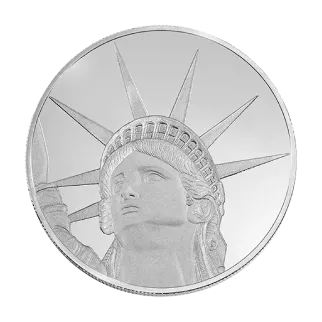Is Inflation “Transitory”?
November 10, 2021
Transitory is a word that has been forced into everyday usage by its continued utterance by US Federal Bank Chair, Jerome Powell. (The Merriam-Webster dictionary definition of the word is: “of brief duration i.e. temporary or tending to pass away. not persistent.”) So is he right in calling current inflation levels ‘transitory’?
The short answer is yes – in part!
Current inflation levels are largely made up of two elements. There is ongoing price inflation, probably running at about 2-3% annually which is generally considered acceptable, but on top of this there is the Covid-19 pandemic-associated inflation which is far higher and indeed is probably ‘transient’ in the true sense of the word.
The real question is how long will this ‘transient’ element of the inflation equation go on? Powell’s arguments are that this is only a short term phenomenon and inflation will revert back to the old 2.5-3% level within a few short months.
However there are others who feel that the inflation problem, admittedly intensified by the pandemic, is far more deep-seated and rates will move higher for longer than the Fed is prepared to acknowledge. Some believe this has been brought on by serious supply-chain problems, although these may eventually be overcome, and that element could be taken out of the headline inflation figure.
How long this will take remains uncertain, though. It could be months before the long-term effects of the current problems are excised from the data.
But there are other underlying elements of the inflation calculation that are deep-seated and could well be reflected in longer term price inflation. Some of these relate to the degrees of debt run up by companies that have used loans, admittedly often at low interest rates and government-supported, in order to stay in business during the pandemic. These companies will need to repay these loans, in addition to financing their everyday running costs as per usual. This could result in price increases that, once in place, may be difficult to reverse.
The most recent calculation of US inflation based on the CPI (Consumer Price Index) sits at 5.4% over the year to September. Many consumers reckon that this understates the true experience of today’s general public.
The next CPI update is due on November 10th and will be closely watched to see if it appears to be getting worse or not.
The September figure is the largest year-on-year increase since July 2008 when the CPI rose to 5.6% and this level could be considered borderline at the point, which becomes gold price positive due to real interest rates moving into seriously negative territory.
Back in 2008 the CPI started to fall after July, and reverted to around 0.1% by the year end, which will be giving the Fed some comfort in its ‘transitory’ forecasts, but the aftermath of the Covid-19 pandemic could put us into a new inflation era. There are thus serious worries that inflation could well move higher through the remainder of the current year and into 2022.
That is until the inflationary after-effects of the virus incidence, and the measures taken to control it, work their way out of the system, which could yet take some time – maybe another year.
The worry potentially facing the markets is could this be the start of an upwards inflationary spiral? If that is seen to be the case, the Fed could begin moves to contain the problem by raising the Federal Funds rate by perhaps as much as half a point or more next year which would be followed across the board. But, in theory, this could begin a major downturn in the equities market.
Market crash warnings abound, which could raise the risk and the Fed may thus proceed cautiously for fear of being accused of precipitating a severe market downturn.
Indeed the Fed may welcome an above-average degree of inflation, as long as this can be kept under control, and thus sit tight without making any anti-inflationary move at all.
by Lawrence Williams

Lawrence (Lawrie) Williams is a highly regarded London-based writer and commentator on financial and political subjects, specializing in precious metals news and commentary. He graduated in mining engineering from The Royal School of Mines, a constituent college of Imperial College, London. He has contributed articles on precious metals to the Financial Times, Sharps Pixley, US Gold Bureau and Seeking Alpha among others.
The opinions expressed in this article are the author’s own, do not necessarily reflect the opinions or views of Rosland Capital LLC or its employees, and do not constitute financial or investment advice or recommendations from the author or Rosland Capital or its employees. The author is compensated by Rosland Capital for his articles.












